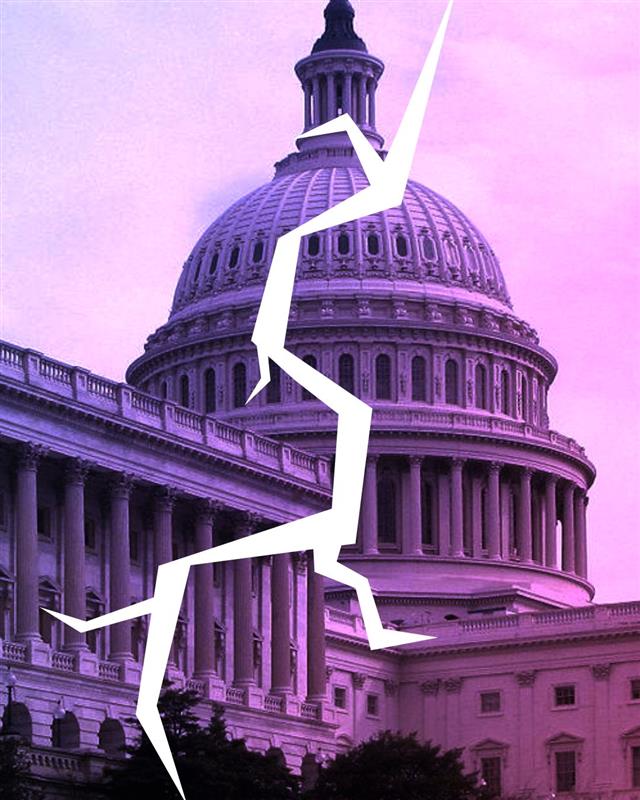The 119th Congress is shaping up to be just as ineffective as the last—but independent voters have an opportunity to change that in 2026.
The Big Picture
The 118th Congress was historically ineffective, and the 119th Congress is already facing the same challenges. With a razor-thin Republican majority in the House, independent voters are rightfully skeptical that this Congress will break from the dysfunction that has defined recent years.
But what if just three independents had won House seats in 2024? Those three members would hold immense power, deciding which party could control the agenda. Independents would set the terms for bipartisan cooperation, and for the first time, independent voters would have a real seat at the table.
Zooming In
The 2024 Election Revealed an Opportunity for Independents
The balance of power in the House came down to just 7,308 votes across three districts: CO-08, IA-01, and PA-07. These are all districts where independents are the largest voting bloc. That means independent voters held the power to decide control of Congress—but no independent candidates were viable in these races.
- Trump won by adding 3 million votes, reaching 77.2 million total.
- Democrats lost 6.3 million votes, dropping to 74.9 million total.
This shift wasn’t just about Republican strength—it was a rejection of the Democratic Party’s ultra-progressive social policies that feel disconnected from the everyday struggles of most Americans. While the left focused on culture wars, voters prioritized inflation, gas prices, and grocery costs—and the GOP capitalized on that disconnect.
Governing Will Be Harder Than Winning
Despite their electoral success, Republicans now face the challenge of governing. They hold only a three-seat House majority, and they don’t control 60 Senate votes, meaning major legislative victories will be difficult.
The party also faces an internal battle between limited-government conservatives and the rising populist wing led by JD Vance and Steve Bannon. This split could shape the GOP’s approach to government spending. Despite campaign rhetoric about cutting spending, Republican voters are the most dependent on federal programs like Social Security and Medicare, which complicates the party’s stance on fiscal policy.
Additionally, executive orders are not a substitute for legislation. While the White House can take some unilateral action, only laws passed by Congress create lasting change. The 2017 Trump tax cuts, for example, were achieved through budget reconciliation, but such partisan measures often fail to gain long-term public support.
The Role of Independents in Shaping Policy
Elon Musk’s Department of Government Efficiency (DOGE) commission is drawing comparisons to the Grace Commission under Reagan, analyzing wasteful government spending. But without legislation, efforts like DOGE will remain symbolic. Meaningful reform will require public support and congressional action.
That’s where independents come in. If independents had representation in Congress, they could force both parties to engage in serious negotiations on spending, economic policy, and government efficiency.
Data Snapshot
- 7,308 votes across three districts determined House control.
- 74.9 million voted for Democrats in 2024—6.3 million fewer than in 2020.
- Republicans gained 3 million votes, bringing Trump’s total to 77.2 million.
- Independent voters now outnumber both Democrats and Republicans in many districts, yet no independents were elected to Congress.
Independent Lens
The opportunity for independents in 2026 is massive. As partisanship drives both major parties to their extremes, independent voters can break the cycle of dysfunction in Washington.
With even a small number of independents elected to Congress, the balance of power would shift dramatically, forcing Democrats and Republicans to compromise and address the issues that matter most to independent voters—affordability, government efficiency, and pragmatic problem-solving.
The demand for independent leadership is clear, and the political market is ready for disruption. Now is the time for independents to organize, run viable campaigns, and prove that Washington doesn’t have to be a two-party battleground.
Subscribe to our newsletter to stay informed on how independents can reshape American politics.




%201.jpg)
